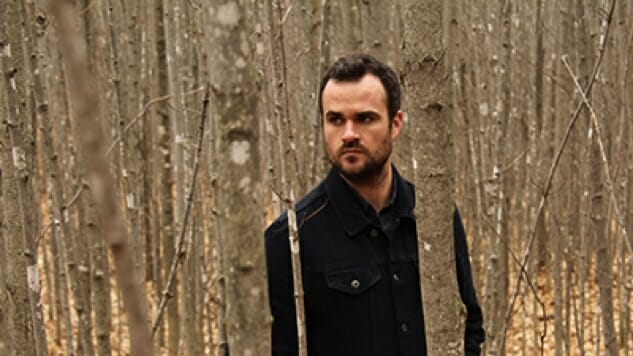The Curmudgeon: Jazz Is for Solos; Rock Is for Songs
Matt Stevens photo courtesy of Whirlwind Records
I have to bite my tongue when friends boast about their favorite rock musicians—whether they be old-timers like Jimmy Page, jam-banders like Trey Anastasio or indie-rockers like Johnny Marr. I have to stop myself from saying, “They’re all nice players, but I listen to jazz, so I know what real skills are.”
I can’t say that; it would be obnoxious. I don’t want to throw cold water on their enjoyment. On the other hand, I can’t in good conscience agree with them. Because, in fact, even the best rock players lack the skills of jazz musicians you’ve never heard of. So I just shut the hell up and smile enigmatically.
I was reminded of this when I was at the Newport Jazz Festival in early August and heard In: Common, a quintet so obscure that its only album was released by a tiny London label. And yet the group tackled both notated passages and improvised solos that were far more challenging harmonically and rhythmically than anything one might hear at any rock festival and they did so with a command of pitch, tone, drama and invention that outclassed their rock comrades.
All five members were virtuosos, but let me focus on Matt Stevens, who was playing the quintessential rock instrument, the electric guitar. This tall, lanky, 37-year-old Canadian wasn’t playing particularly fast or flashy, but he was constantly altering the chords in each composition to make them denser and tenser even as his tone grew harsher in response.
This created sounds one had never heard before and situations packed with suspense: Where could this music go? How could it come to terms with the other instruments? And when Stevens finally revealed his intentions, reaching a climax that clicked with the rest of the band, the catharsis was cleansing. It was as if he were tying and untying knots in the music all afternoon.
This was instrumental music of a high order, and it was only possible because Stevens and his comrades had a larger palette to work from, because they could go beyond the few dozen chords and handful of meters that rock uses. Once a listener learns this expanded vocabulary, the eloquence of the music is staggering. And it’s not just In: Common; most of the ensembles at Newport or at January’s Winter Jazzfest in Manhattan demonstrated a similar level of instrumental excellence.
Does this mean that jazz is a superior genre to rock or that jazz musicians are more talented than their rock counterparts? No. It merely means that jazz musicians have more advanced instrumental skills. Why? Because a higher level of technical expertise is expected just to enter the field and so aspiring jazz players—in school and/or on their own—train to clear that higher bar. Musicians will always work to become as good as they must to succeed in their chosen genre.
In fact, when it comes to notated music, there’s a genre whose players have even better instrumental skills than jazz musicians. That’s classical music. Aspiring classical players don’t have to worry about improvisation, so they can focus on achieving the best possible speed, accuracy, tone and nuance for written scores and in that realm they surpass even jazz musicians.
I still remember the National Symphony Orchestra performing some Duke Ellington pieces at a Wolf Trap jazz festival in the ’80s. On the notated passages, they sounded better than anyone else at the fest; on the improvised sections, they sounded worse than everyone.
If jazz and classical are so great, you might ask, why do I still listen to pop music? I listen, because rock ’n’ roll, country, R&B and the rest still create and execute short songs better than any other genre. They can still combine words, melody, chords and beats into concentrated packages of pure emotion. The best pop vocalists and instrumentalists are essentially songwriting collaborators in the sense that they heighten the storytelling rather than embellishing it with virtuosity.
When Aretha Franklin sang “(You Make Me Feel Like) A Natural Woman,” she was enhancing Carole King’s seductive melody and Gerry Goffin’s evocative words with every stretch of a syllable and every leap in volume. When Jerry Garcia played a guitar solo on “When the Hunter Gets Captured by the Game,” he was bolstering Smokey Robinson’s syncopated vocal line with every melodic detour. What’s impressive about Franklin’s and Garcia’s performances was not their technical expertise but rather their gift for adding to the songwriting process.
-

-

-

-

-

-

-

-

-

-

-

-

-

-

-

-

-

-

-

-

-

-

-

-

-

-

-

-

-

-

-

-

-

-

-

-

-

-

-

-








































